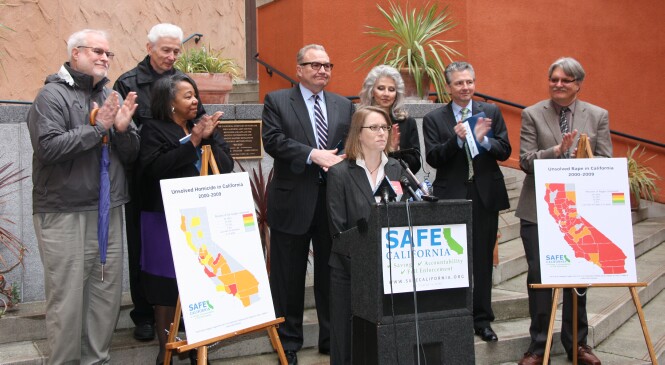Vanguard Analysis: Current Water Rates Seem Fair and Proportional
![]() Earlier this week, we evaluated whether Davis was in compliance with the Palmdale decision that invalidated the water rate structure of the City of Palmdale, based on a ruling from the Second District Appellate Court of California. The court found their rate structure failed to comply with the mandates of Proposition 218 and its “proportionality requirement which specifies that no fee or charge imposed upon any person or parcel as an incident of property ownership shall exceed the proportional cost of the service attributable to the parcel. Accordingly, we reverse the judgment.”
Earlier this week, we evaluated whether Davis was in compliance with the Palmdale decision that invalidated the water rate structure of the City of Palmdale, based on a ruling from the Second District Appellate Court of California. The court found their rate structure failed to comply with the mandates of Proposition 218 and its “proportionality requirement which specifies that no fee or charge imposed upon any person or parcel as an incident of property ownership shall exceed the proportional cost of the service attributable to the parcel. Accordingly, we reverse the judgment.”
Some believed that the problems of Palmdale were, in fact, unique to Palmdale because “in this instance, the District failed to demonstrate that the proposed budget based rates for one customer class were proportionate to the cost of providing water service in violation of Proposition 218.”


 Contrary to charges by some that the city has spent over 800,000 dollars defending itself on the DACHA issue, the true cost, at least according to the city’s disclosure in response to a Davis Vanguard Public Records Act requests, is about half of that.
Contrary to charges by some that the city has spent over 800,000 dollars defending itself on the DACHA issue, the true cost, at least according to the city’s disclosure in response to a Davis Vanguard Public Records Act requests, is about half of that. Enough has been made about the possibility that mail-in ballots are less secure than other forms of voting that it seemed like a wise idea to speak with Yolo County Clerk Freddie Oakley, so she could explain what her office does to protect the integrity of the process.
Enough has been made about the possibility that mail-in ballots are less secure than other forms of voting that it seemed like a wise idea to speak with Yolo County Clerk Freddie Oakley, so she could explain what her office does to protect the integrity of the process.
 The US Supreme Court is poised to hear arguments on March 20 on two sentences of 14 years, about the constitutionality of life without parole sentences for juveniles. A previous court ruling had ruled it unconstitutional to impose a sentence of life without parole for juveniles convicted of non-homicide offenses.
The US Supreme Court is poised to hear arguments on March 20 on two sentences of 14 years, about the constitutionality of life without parole sentences for juveniles. A previous court ruling had ruled it unconstitutional to impose a sentence of life without parole for juveniles convicted of non-homicide offenses.